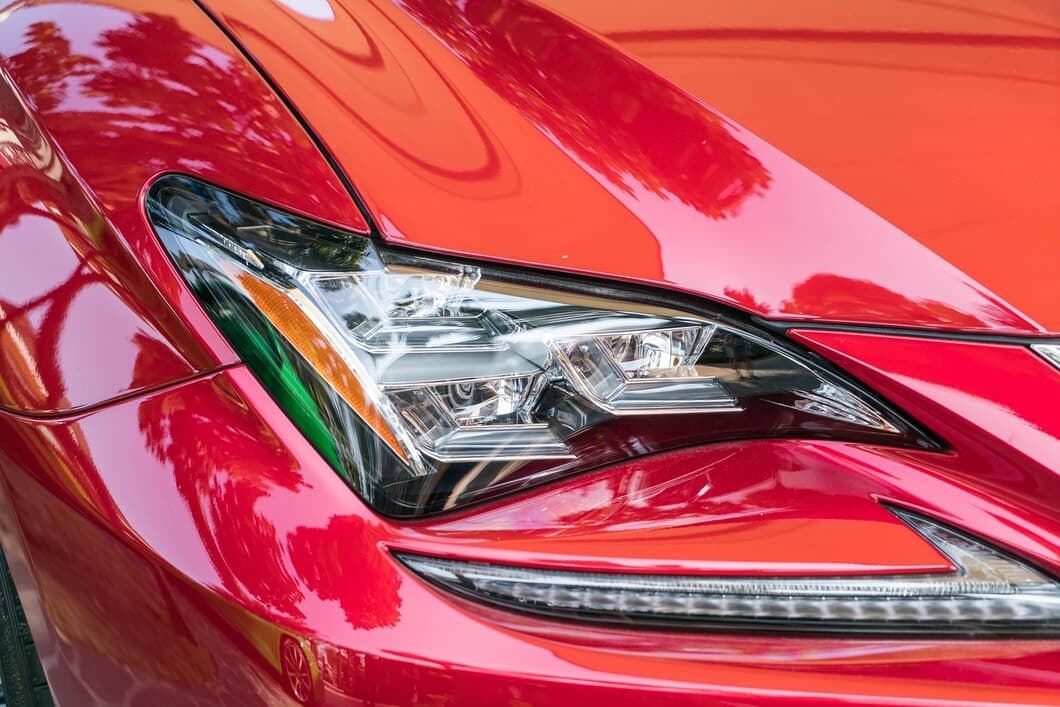
Windshield wipers are an essential part of any vehicle, and they need to be properly lubricated in order to function properly. There are a variety of lubricants on the market, so it can be difficult to know which one is best for your wipers. In this article, we'll discuss the pros and cons of different windshield wiper lubricants and help you choose the best one for your needs.
When choosing a windshield wiper lubricant, it's important to consider the following factors: the type of wiper blades you have, the climate you live in, and your personal preferences. If you have rubber wiper blades, you'll need to use a lubricant that is specifically designed for rubber. If you have silicone wiper blades, you can use a silicone-based lubricant or a general-purpose lubricant. If you live in a cold climate, you'll need to use a lubricant that is rated for cold weather. Finally, you may also want to consider your personal preferences. Some lubricants are more slippery than others, and some have a stronger scent than others.
How to lubricate windshield wipers
If you're looking to extend the life of your windshield wipers, lubricating them is a great way to do so. There are a few different ways to lubricate your wipers, and the best method for you will depend on the type of wipers you have. If you have traditional rubber wipers, you can use a silicone-based lubricant. Simply apply a small amount of the lubricant to a clean cloth and wipe it along the length of the wiper blade. If you have beam wipers, you can use a graphite-based lubricant. Apply the lubricant to the metal frame of the wiper blade, and then wipe away any excess.
No matter what type of wipers you have, it's important to lubricate them regularly. This will help to keep them functioning smoothly and prevent them from prematurely wearing out.
In addition to lubricating your wipers, there are a few other things you can do to extend their life. These include:
- Cleaning your wipers regularly with a mild detergent and water - Replacing your wipers every 6-12 months - Avoiding using your wipers on a dry windshield - Lifting your wipers off the windshield when you park your car in the sun or in freezing temperatures
Types of windshield wiper lubricants
Silicone-based lubricants are the most common type of windshield wiper lubricant. They are effective at reducing friction and wear on the wiper blades, and they can also help to prevent the blades from freezing in cold weather. Petroleum-based lubricants are another option, but they are not as effective as silicone-based lubricants and they can also damage the wiper blades over time. Graphite-based lubricants are a good choice for high-performance vehicles, as they can help to reduce friction and wear on the wiper blades and they can also improve the wiping performance.
There are also a number of natural lubricants that can be used on windshield wipers. These lubricants include olive oil, coconut oil, and beeswax. Natural lubricants are not as effective as synthetic lubricants, but they are less likely to damage the wiper blades and they are also more environmentally friendly.
Best time to lubricate windshield wipers
Knowing when to lubricate windshield wipers helps you maximize their performance. Lubricating them too often can lead to wasted product, while too little lubrication can cause the wipers to squeak or skip. As a general rule, you should lubricate your windshield wipers every 6-12 months or as needed. For extreme weather conditions such as snow or heavy rain, more frequent lubrication may be necessary.
To determine if your windshield wipers require lubrication, check if they leave streaks or noise. If you notice streaks, use a mild detergent to clean the blades. If the noise persists, try using a lubricant. Never use oil on your windshield wipers as it can damage the rubber and plastic components. Instead, opt for a silicone-based lubricant specifically designed for automotive use.
To lubricate your windshield wipers, simply apply a small amount of lubricant to the rubber blade. Spread the lubricant evenly over the entire blade and wipe away any excess. Avoid over-lubricating the wipers as this can attract dirt.
Regularly lubricating your windshield wipers is an essential maintenance task. By ensuring that your wipers are properly lubricated, you can extend their lifespan and ensure that they perform optimally in all weather conditions.
How often to lubricate windshield wipers

How often should you lubricate your windshield wipers? The answer depends on a few factors, including the type of lubricant you use, the climate you live in, and how often you use your wipers. In general, it's a good idea to lubricate your windshield wipers every few months, or more often if you live in a dry climate or use your wipers frequently.
The best way to lubricate your windshield wipers is to use a silicone-based lubricant. Silicone lubricants are long-lasting and won't damage your wipers. To apply the lubricant, simply wipe it along the length of the wiper blades. Be sure to wipe off any excess lubricant, as it can attract dirt and debris.
Benefits of lubricating windshield wipers
Lubricating windshield wipers has several benefits. First, it can help to extend the life of the wipers. When wipers are lubricated, they can more easily slide across the windshield, which reduces wear and tear. This can help to prevent the wipers from becoming damaged or breaking down prematurely.
Second, lubricating windshield wipers can help to improve their performance. When wipers are lubricated, they can more effectively remove dirt, debris, and water from the windshield. This can help to improve visibility while driving, and it can also help to prevent the windshield from becoming streaky or smudged.
Third, lubricating windshield wipers can help to reduce noise. When wipers are not lubricated, they can squeak or chatter when they are used. This can be annoying for both the driver and the passengers. Lubricating the wipers can help to reduce noise and make them more pleasant to use.
Overall, lubricating windshield wipers is a simple and effective way to extend their life, improve their performance, and reduce noise. It is a simple task that can be done in just a few minutes, and it can make a big difference in the performance of your windshield wipers.
Potential problems with lubricating windshield wipers
Using the wrong lubricant can damage your windshield wipers, even if the lubricant is safe for use on rubber. Some lubricants contain harsh chemicals that can break down the rubber in the wipers, causing them to become brittle and crack. Other lubricants may attract dirt and debris, which can clog the wipers and make them less effective. It is important to read the instructions on the lubricant carefully before using it on your windshield wipers.
If you are not sure what type of lubricant to use, it is best to consult with a professional. A professional can help you choose the right lubricant for your windshield wipers and ensure that it is applied correctly.
Lubricating your windshield wipers regularly can help them last longer and perform better. However, it is important to be aware of the potential problems that can arise from using the wrong lubricant.
Alternatives to lubricating windshield wipers
If you find that your windshield wipers are squeaking or chattering, it's time to lubricate them. WD-40 is a popular choice for lubricating windshield wipers, but there are other alternatives that you can use.
One alternative is to use a silicone-based lubricant. Silicone lubricants are more water-resistant than WD-40, so they will last longer. You can apply silicone lubricant to your windshield wipers with a clean cloth.
Another alternative is to use a graphite-based lubricant. Graphite lubricants are very dry, so they will not attract dirt and grime. You can apply graphite lubricant to your windshield wipers with a cotton swab.
Finally, you can also use a petroleum-based lubricant. Petroleum lubricants are not as water-resistant as silicone lubricants, but they are more readily available. You can apply petroleum lubricant to your windshield wipers with a clean cloth.
DIY windshield wiper lubricant
If you're like most people, you probably don't think much about your windshield wipers until they stop working. But when they do, it can be a real pain. One of the most common causes of wiper problems is a lack of lubrication. When your wipers are dry, they can squeak, chatter, and even skip across your windshield. This can be not only annoying, but also dangerous. In wet weather, it can make it difficult to see, which can lead to an accident.
The good news is that lubricating your windshield wipers is a quick and easy task that you can do yourself. There are a few different ways to do it, but the most common method is to use a silicone-based lubricant. These lubricants are available at most auto parts stores, and they're easy to apply. Just spray a small amount of lubricant onto a clean cloth, and then wipe down the blades of your wipers.
You should lubricate your windshield wipers every few months, or more often if you live in a dry climate. This will help to keep them working smoothly and prevent them from squeaking or skipping.
In addition to lubricating your windshield wipers, you should also inspect them regularly for wear and tear. If the blades are cracked or torn, they need to be replaced. You should also replace your windshield wipers every year or two, even if they're not showing signs of wear.
Conclusion
In conclusion, choosing the right lubricant for your windshield wipers is crucial to ensure optimal performance. While there are numerous options available, each with its advantages and disadvantages, it's important to consider your specific needs and preferences when making a decision.
Ultimately, the best lubricant for you will depend on factors such as your climate, the type of wiper blades you have, and how often you use your wipers. By carefully considering these factors and choosing a lubricant that meets your requirements, you can extend the lifespan of your wiper blades and ensure a clear and safe driving experience.
Frequently Asked Questions
Can I use WD-40 to lubricate windshield wipers?
WD-40 is not a good choice for lubricating windshield wipers. It can damage the rubber and cause them to deteriorate more quickly.
How often should I lubricate my windshield wipers?
You should lubricate your windshield wipers every 6-12 months, or more often if you live in a climate with extreme temperatures or frequent rain.
What is the best way to lubricate windshield wipers?
The best way to lubricate windshield wipers is to use a silicone-based lubricant. Apply a small amount of lubricant to a clean cloth and wipe it along the length of the rubber blades.
How can I tell if my windshield wipers need to be lubricated?
If your windshield wipers are making a squeaking or chattering noise, or if they are not clearing the windshield effectively, they may need to be lubricated.
Summary
Many different lubricants can be used on windshield wipers. Some of the most popular options include silicone-based lubricants, graphite-based lubricants, and petroleum-based lubricants. Silicone-based lubricants are often preferred because they are long-lasting and do not attract dirt and grime.
When choosing a lubricant for your windshield wipers, it is important to consider the climate in which you live. If you live in a cold climate, you will need a lubricant that can withstand freezing temperatures. If you live in a hot climate, you will need a lubricant that can withstand high temperatures.